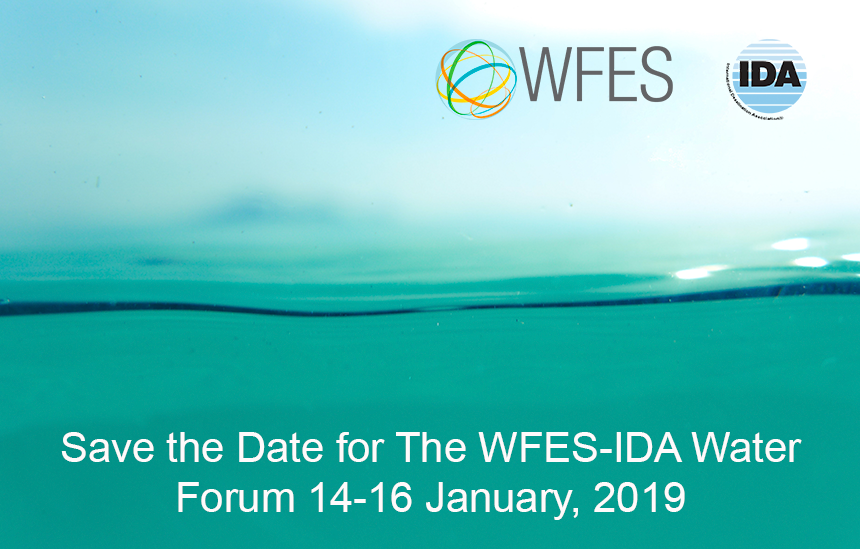Organized in partnership with IDRA, the new WFES Water Forum will focus on solutions to the world’s significant water scarcity challenges and will present the latest approaches to water supply, demand and security that can help address these issues. Held on January 14-16, the program will explore how the latest thinking and technology can optimize resource efficiency, sustainability and security in the GCC region. In addition, it will explore the evolving role of water in energy production and conversely the use of power in water supply and how technology advances are creating a low-carbon, more cost-efficient future in clean water production. Also on the agenda is discussion of the actions that will be required to achieve innovative resource sustainability, provide more water resources for food production, and grow food with a fraction of the water used today.
Day One focuses on sessions covering an Update on the UAE’s 2036 Water Security Strategy from the Ministry of Energy and Industry; Creating an Integrated Water Management Strategy to Optimize Efficiency, Security and Sustainability in GCC Countries moderated by Dr. Najib H Dandachi, CEO, AL Usul, UAE; Harnessing Renewable Technology to Reduce the Energy Footprint of Water, led by Leon Awerbuch, IDRA Director and President, Leading Edge Technologies, USA; Increasing the Use of RO to Supply Low-Carbon, Cost Efficient Water, moderated by Rachid Ghamraoui, IDRA Vice President, Vice President of BESIX Middle East, UAE; and The Evolving Role of Water in Energy Exploration & Production, moderated by Dr. Mike Dixon, IDRA Director/CEO, Synauta, Canada. The program also features a panel discussion on The Microgrid of Water, led by Emmanuel Gayan, CEO and Managing Director, Osmoflo, UAE.
The program on Day Two centers on The Water-Food Nexus, beginning with a panel discussion on Water and Food: UN SDGs and Resource Sustainability, moderated by Mr. Chris Holmes, Senior Advisor at Boston Consulting Group, USA. Ensuing panels address Water-Food and the Bio‐Economy: Future Challenges and Solutions, led by Dr. Olcay Unver, Deputy Director, Land and Water Division, Food and Agriculture Organization of the United Nations (FAO), Italy; and Aquifer Management & Water Security with moderator Dr. Mohamed Hamyd Dawoud, Advisor – Water Resources Environment Quality, UAE. Other sessions on Day Two include DSM strategies to Increase Water Efficiency, Establishing Regional Targets for Leakage and a closing keynote on Water and the Environment in the Gulf Countries (GCC).
Tech for Good: Disruptive Technology for Better Lives is the focus of Day Three. The centerpiece of Tech for Good Day will be the “Tech for Good Forum” held in the Water Theatre at WFES. This brings together UN Agencies, NGOs and donors and technology provides and entrepreneurs to discuss how humanitarian assistance is being furthered by modern advances in renewable energy, digital technologies, autonomous and remote devices and more. The Water Hall at WFES also contains the Tech for Good Hub where agencies and companies will be displaying solutions throughout the week.

